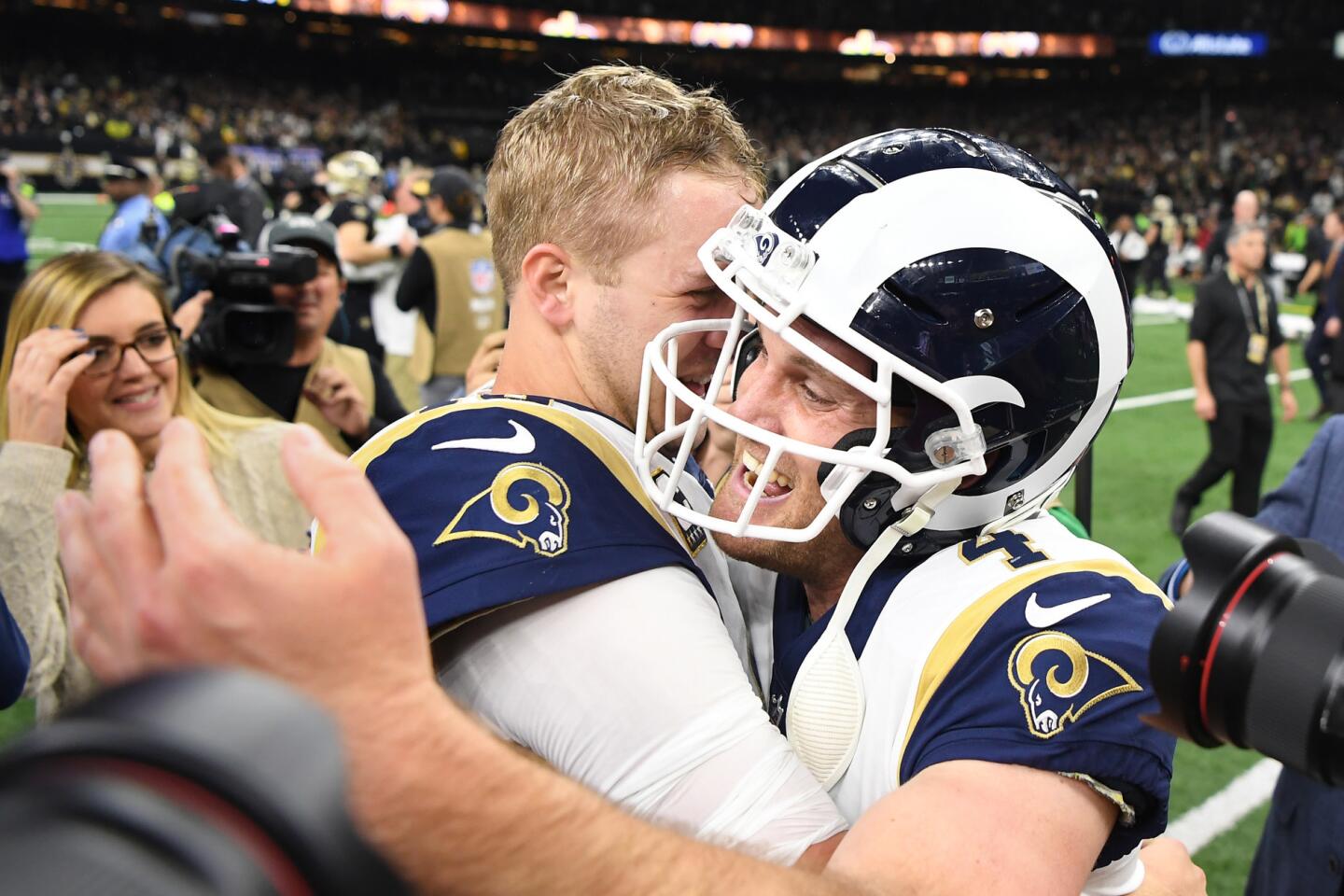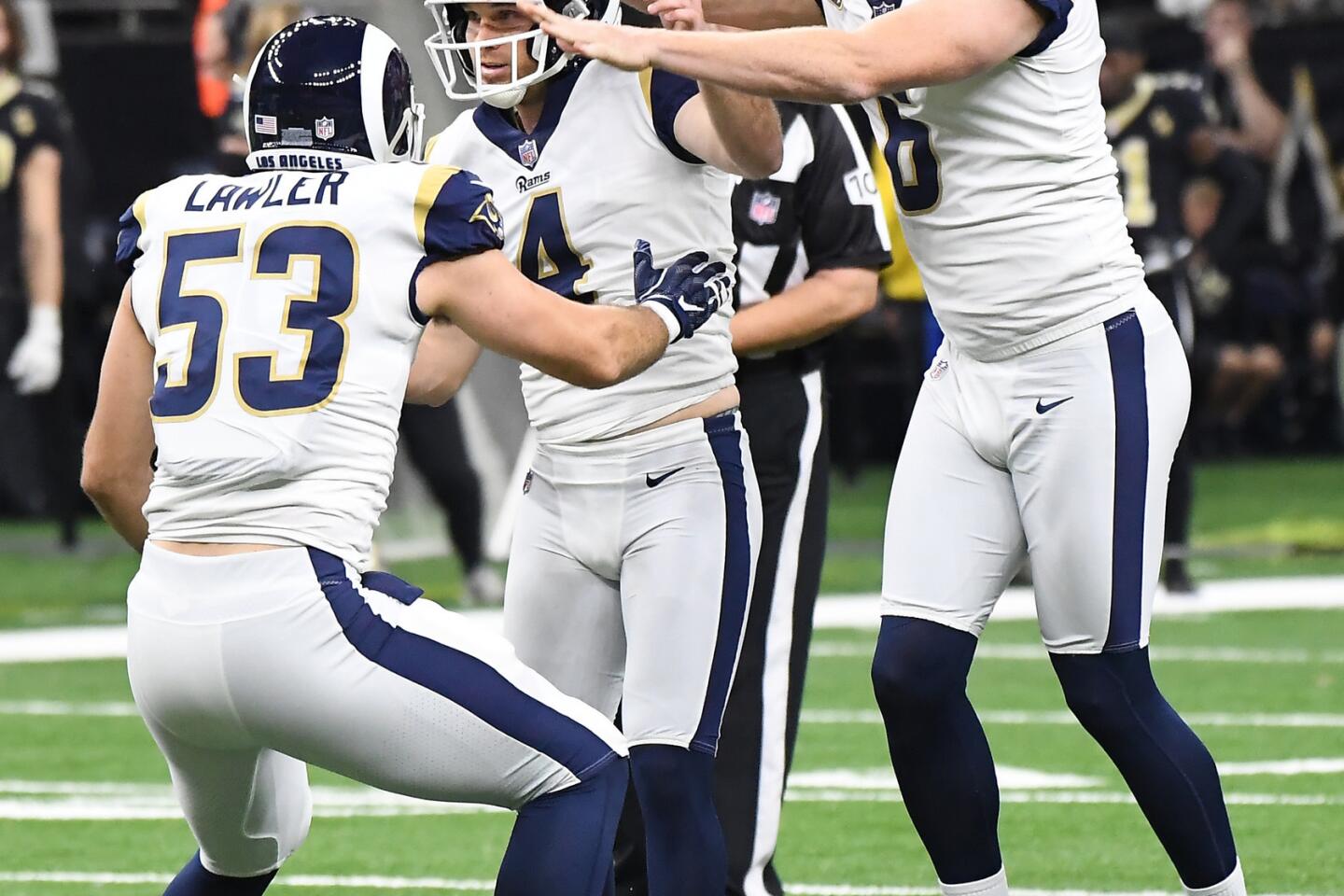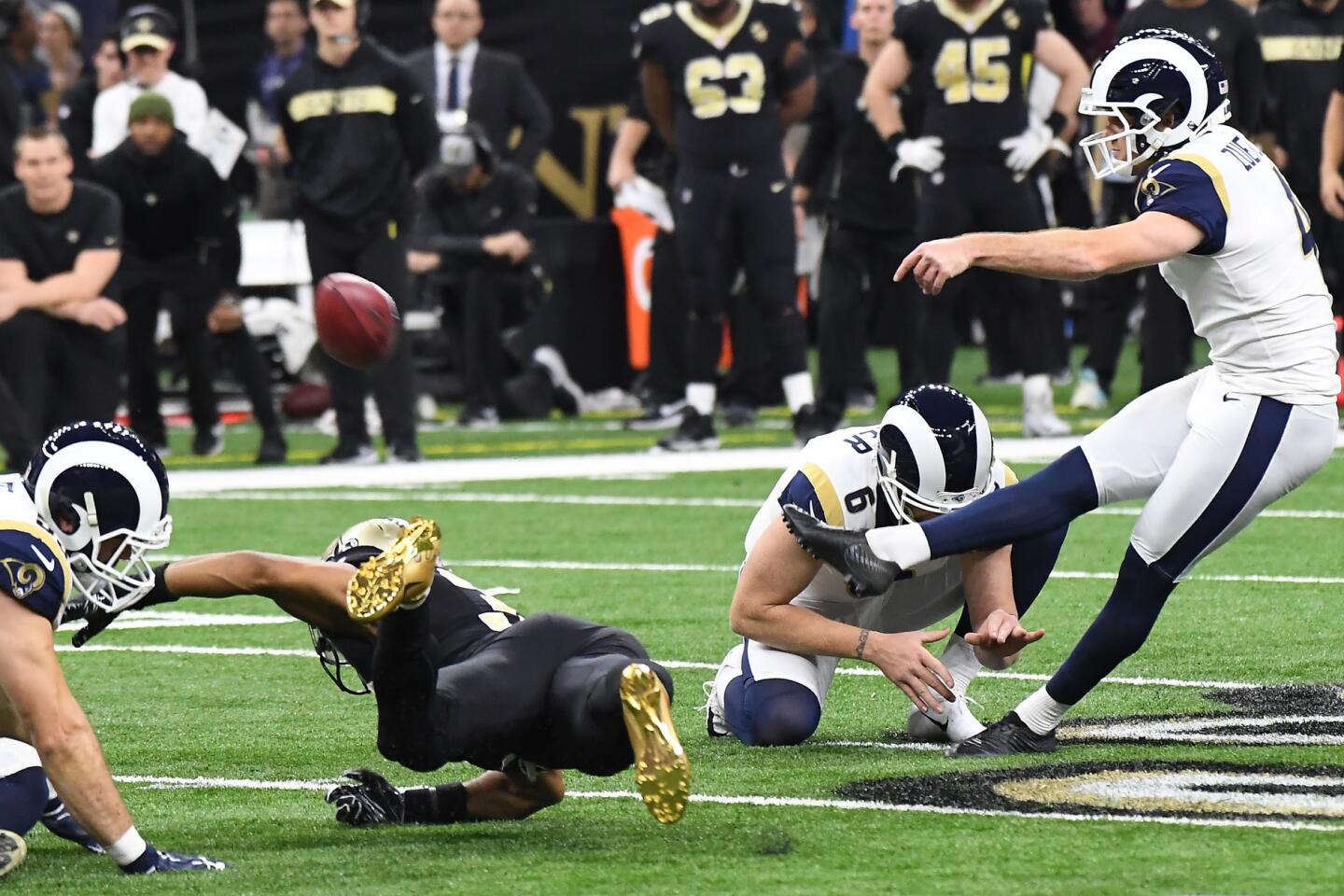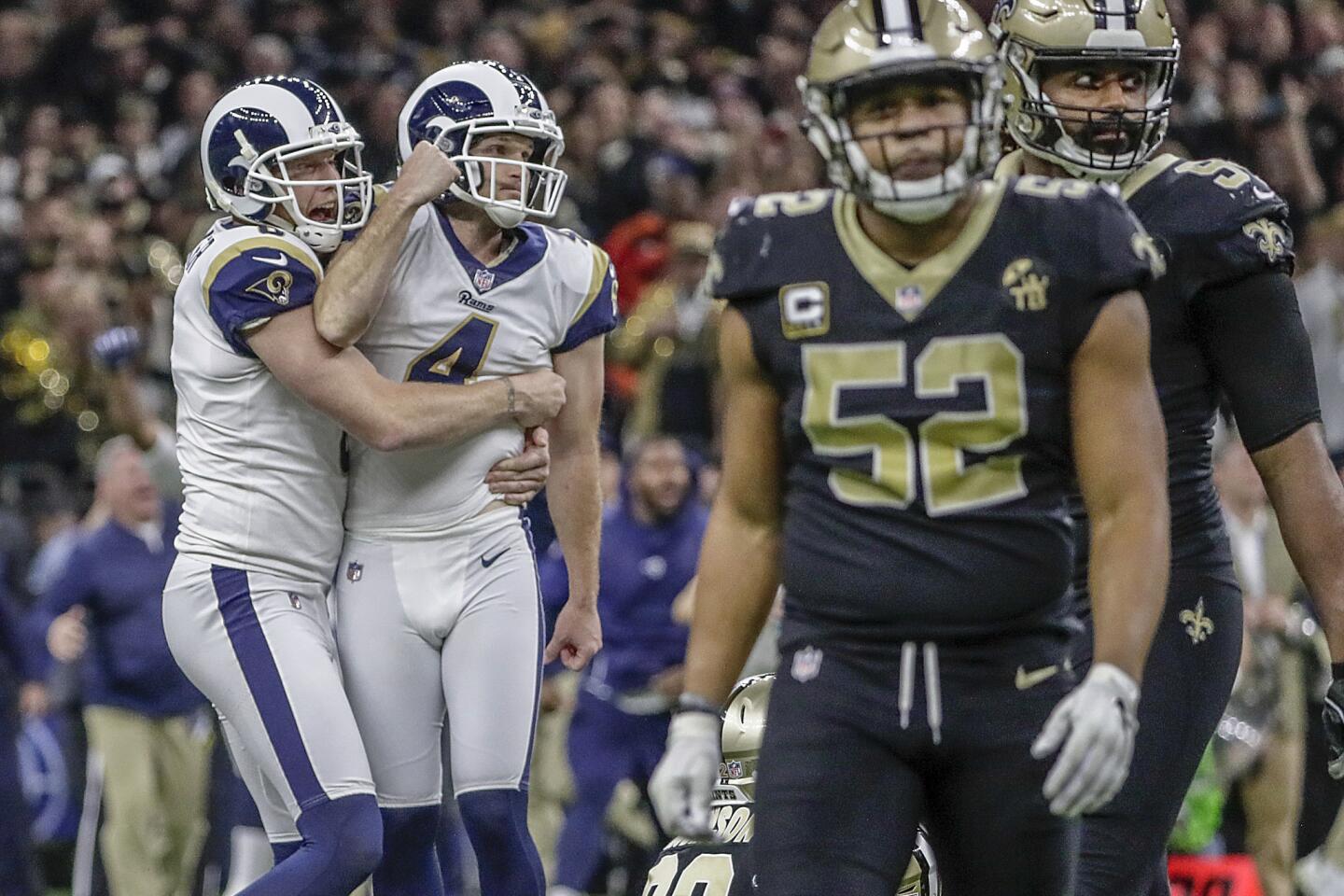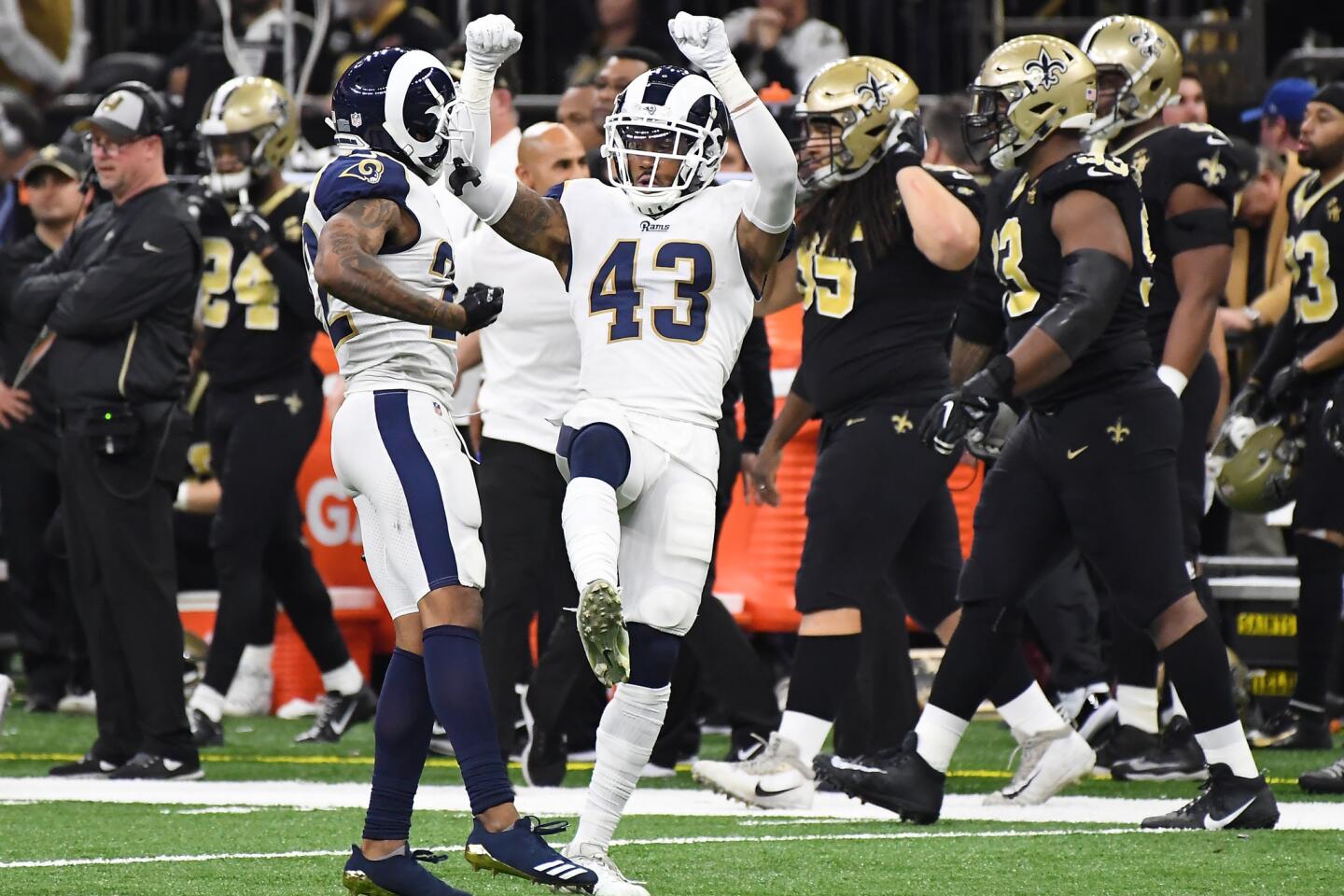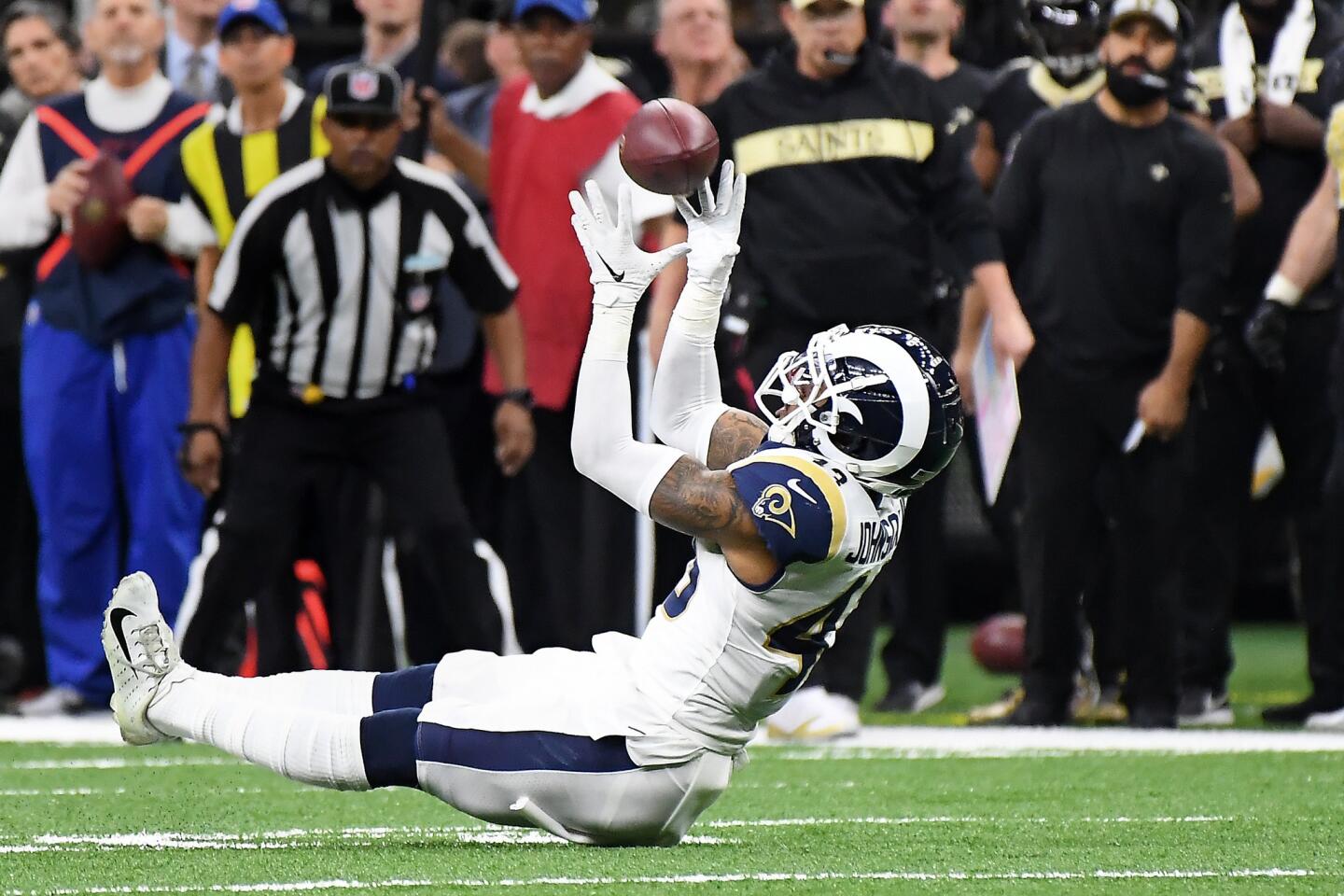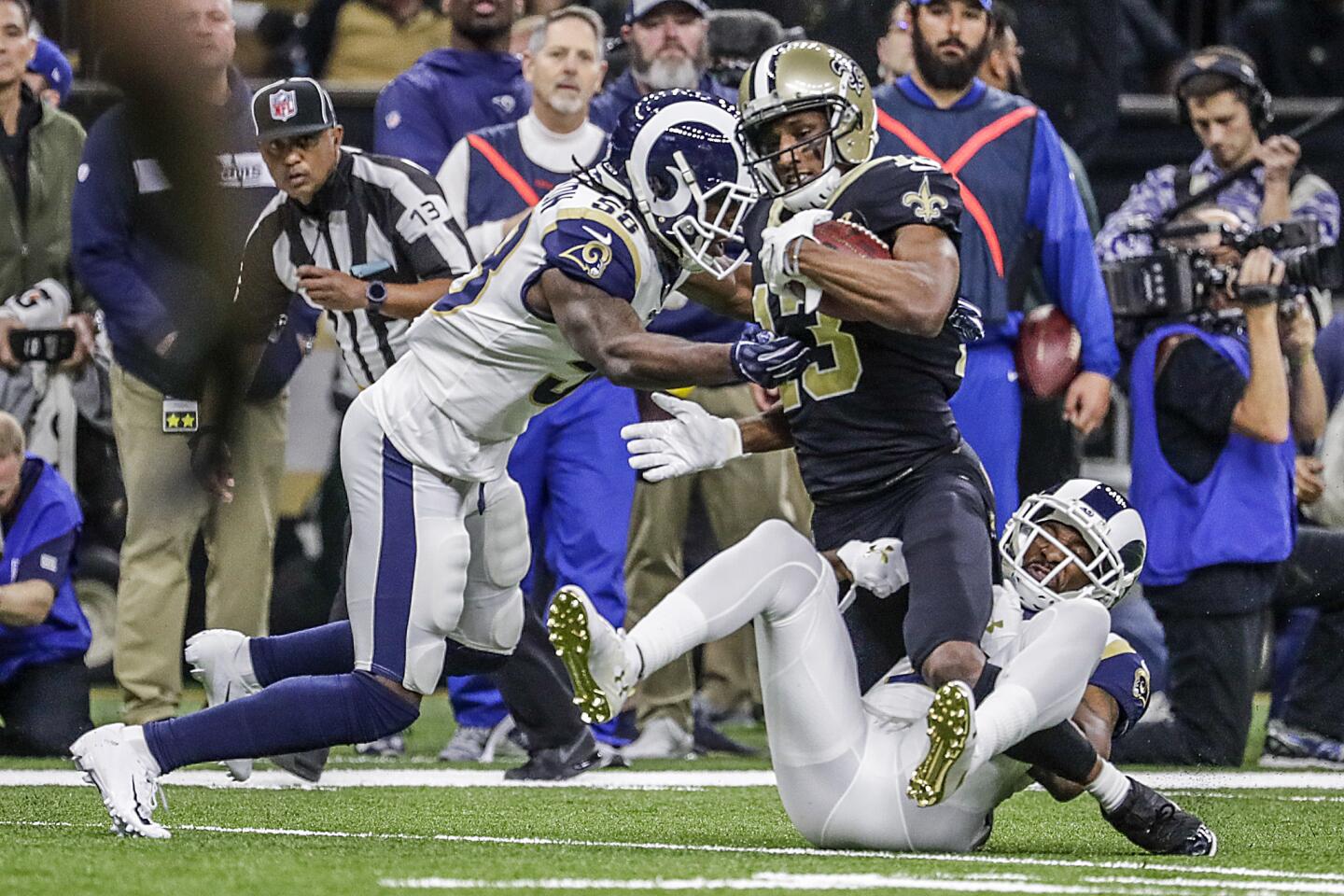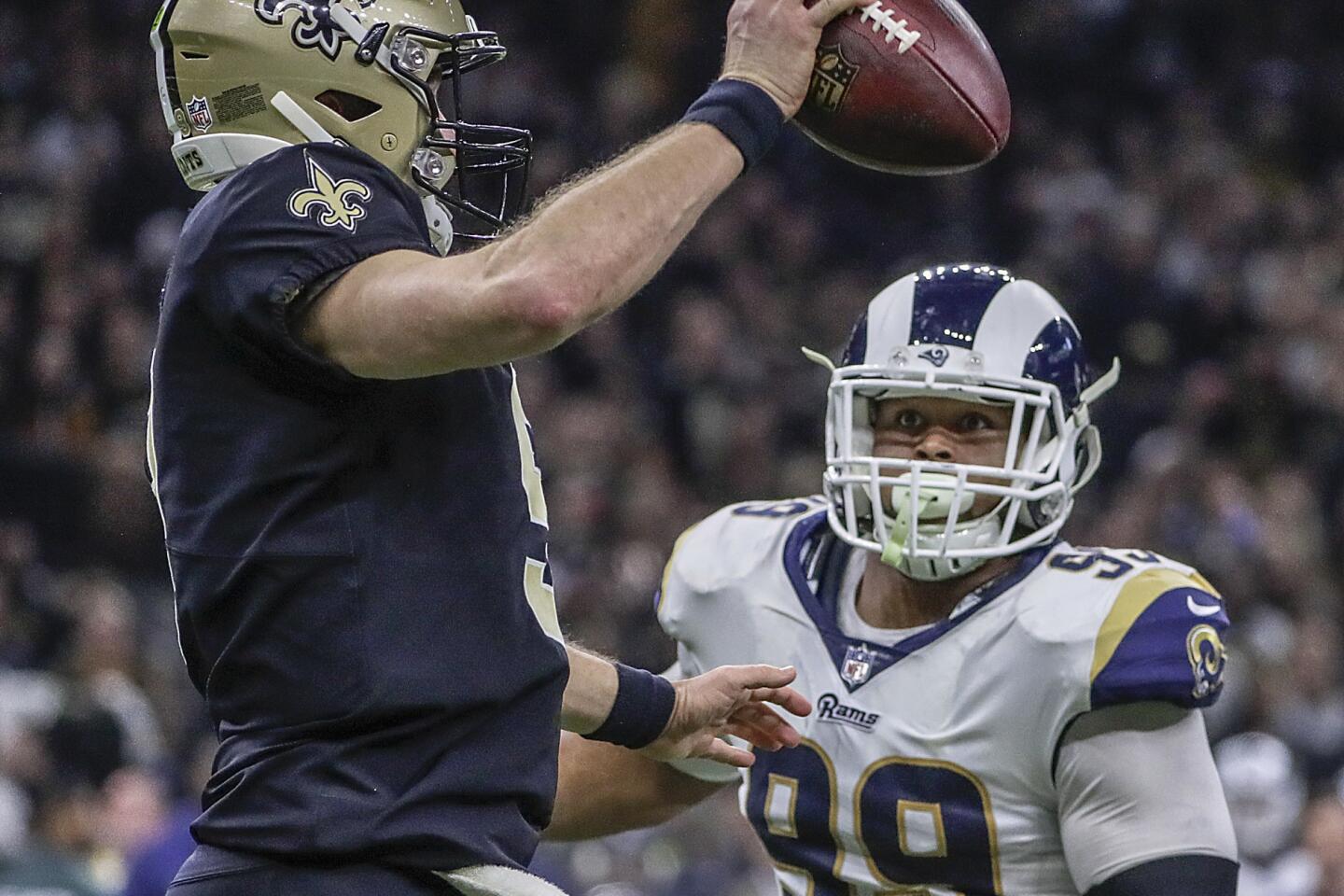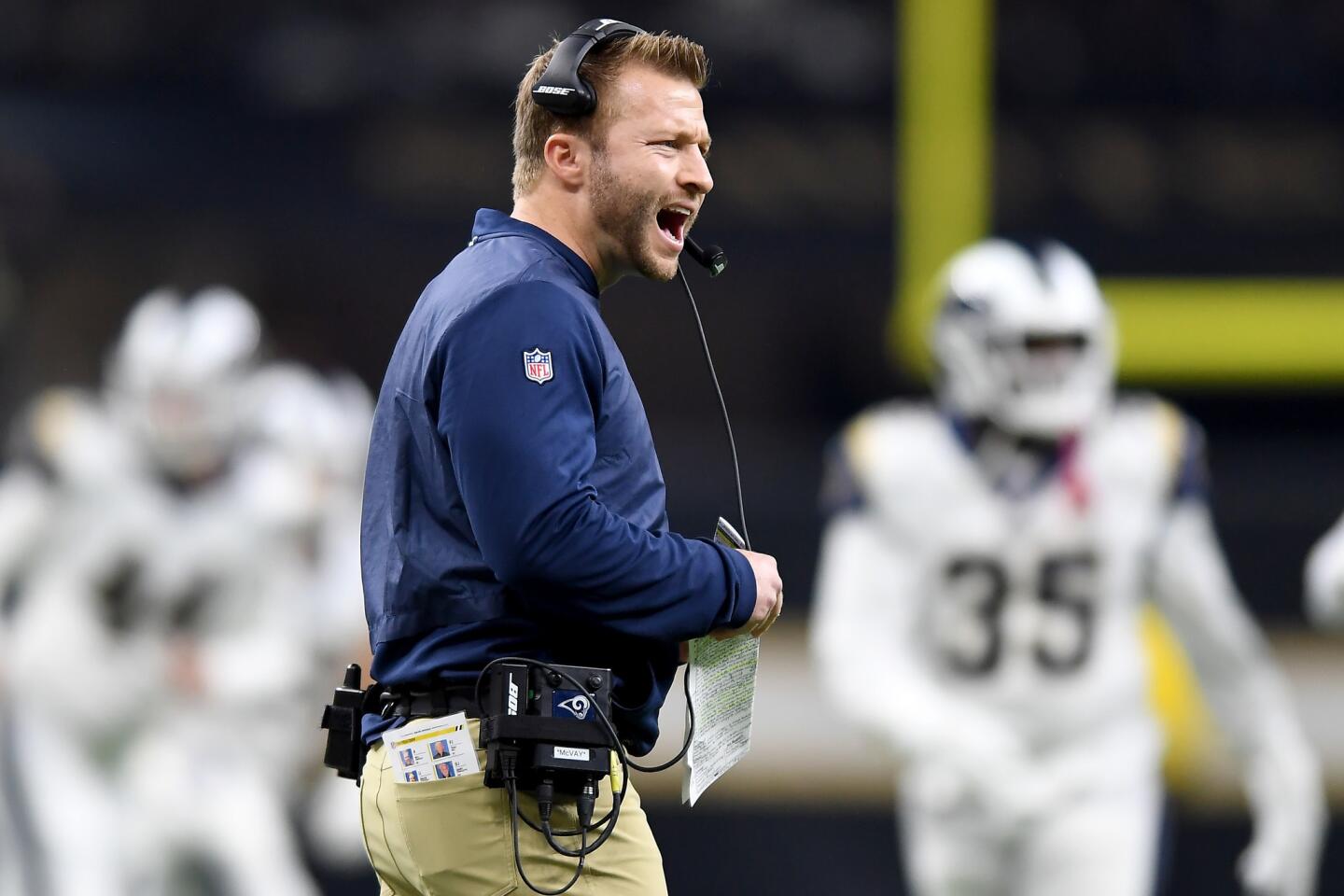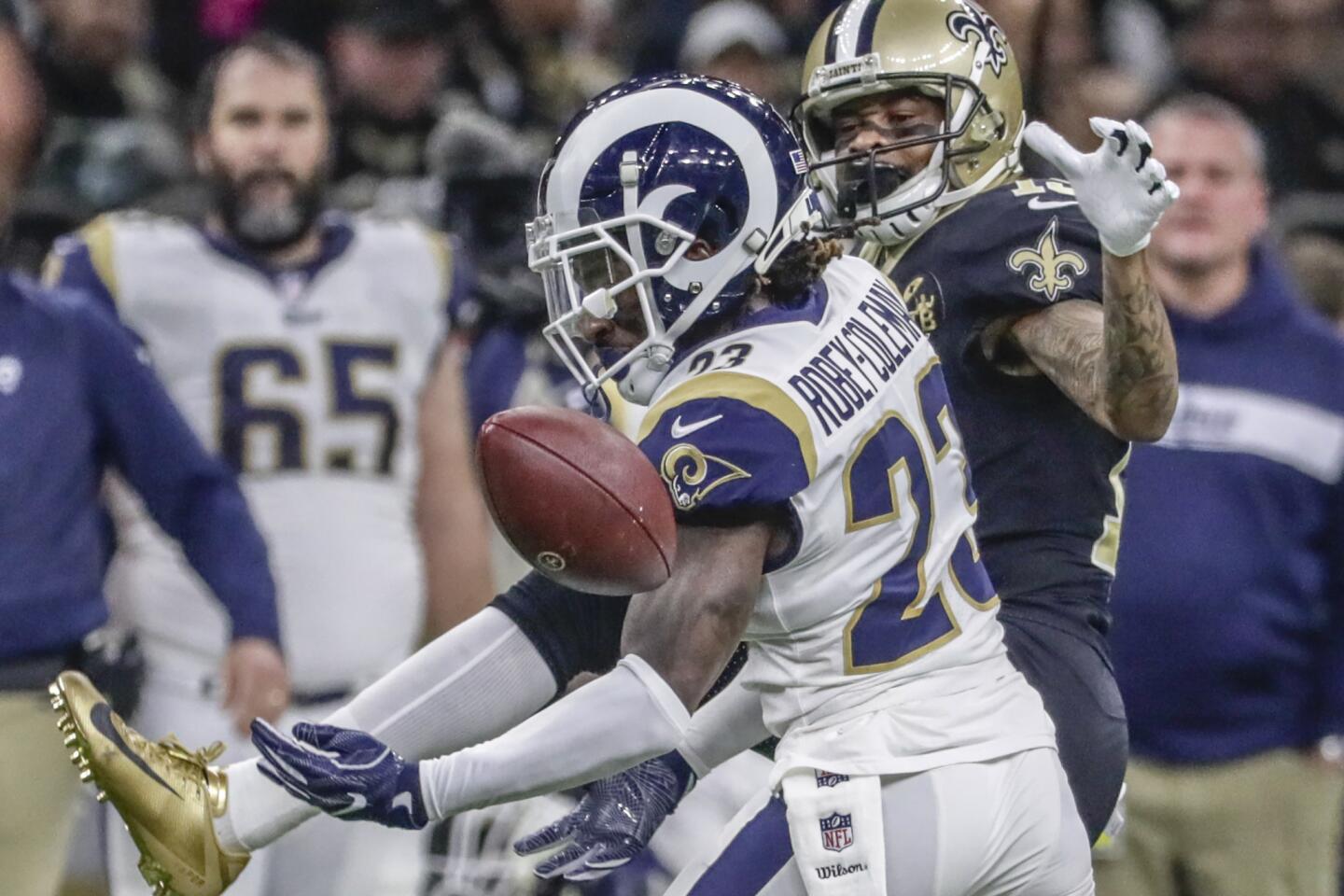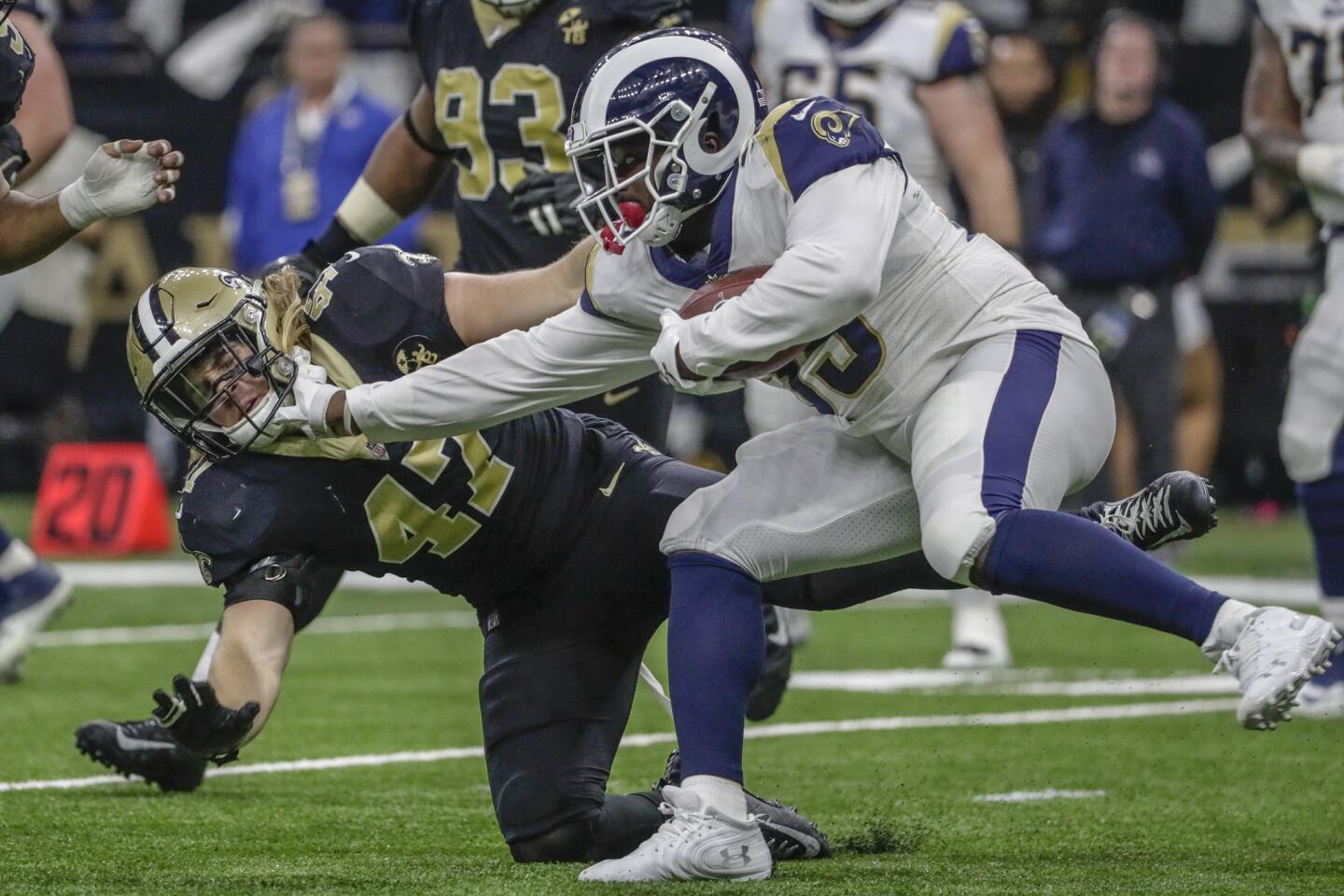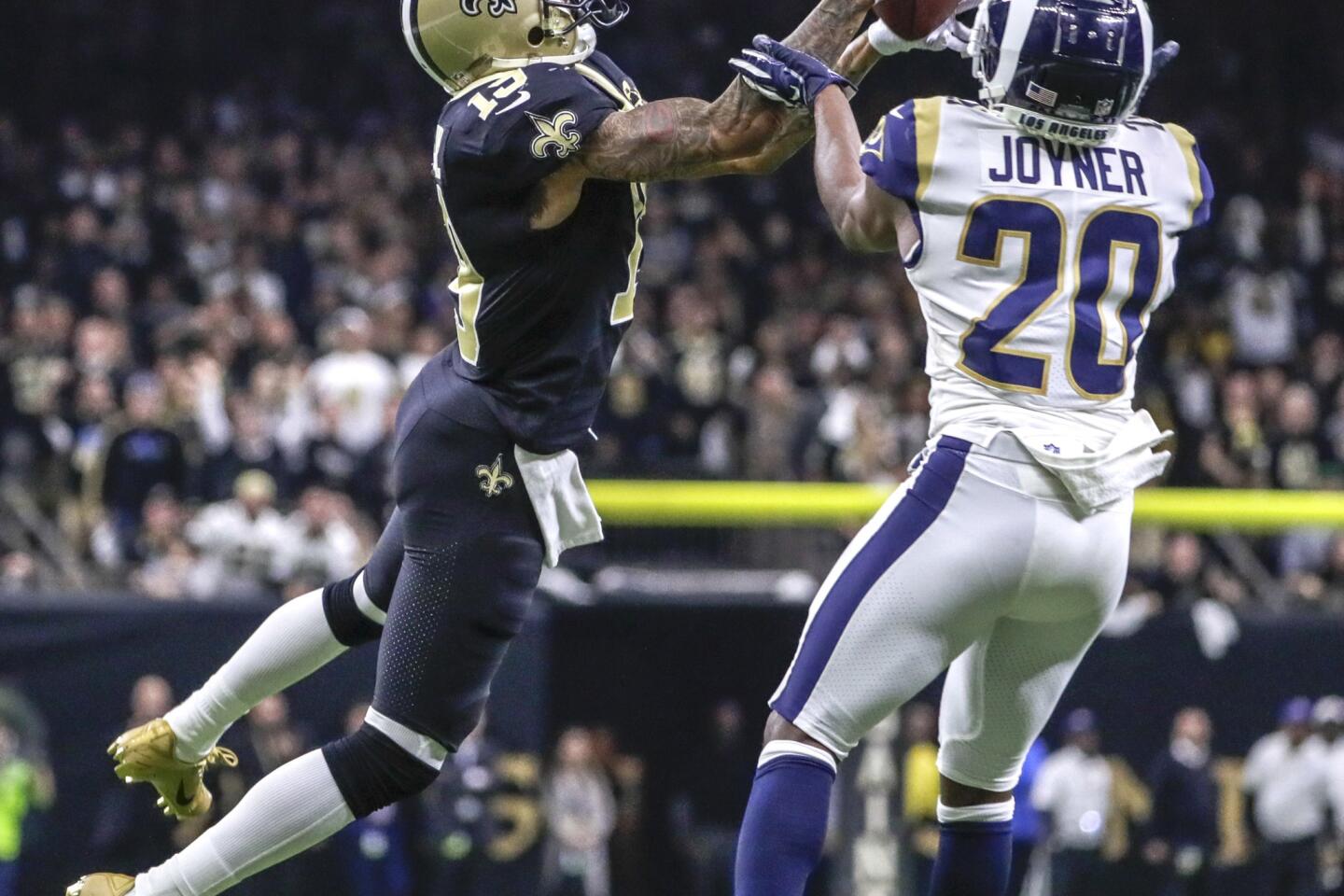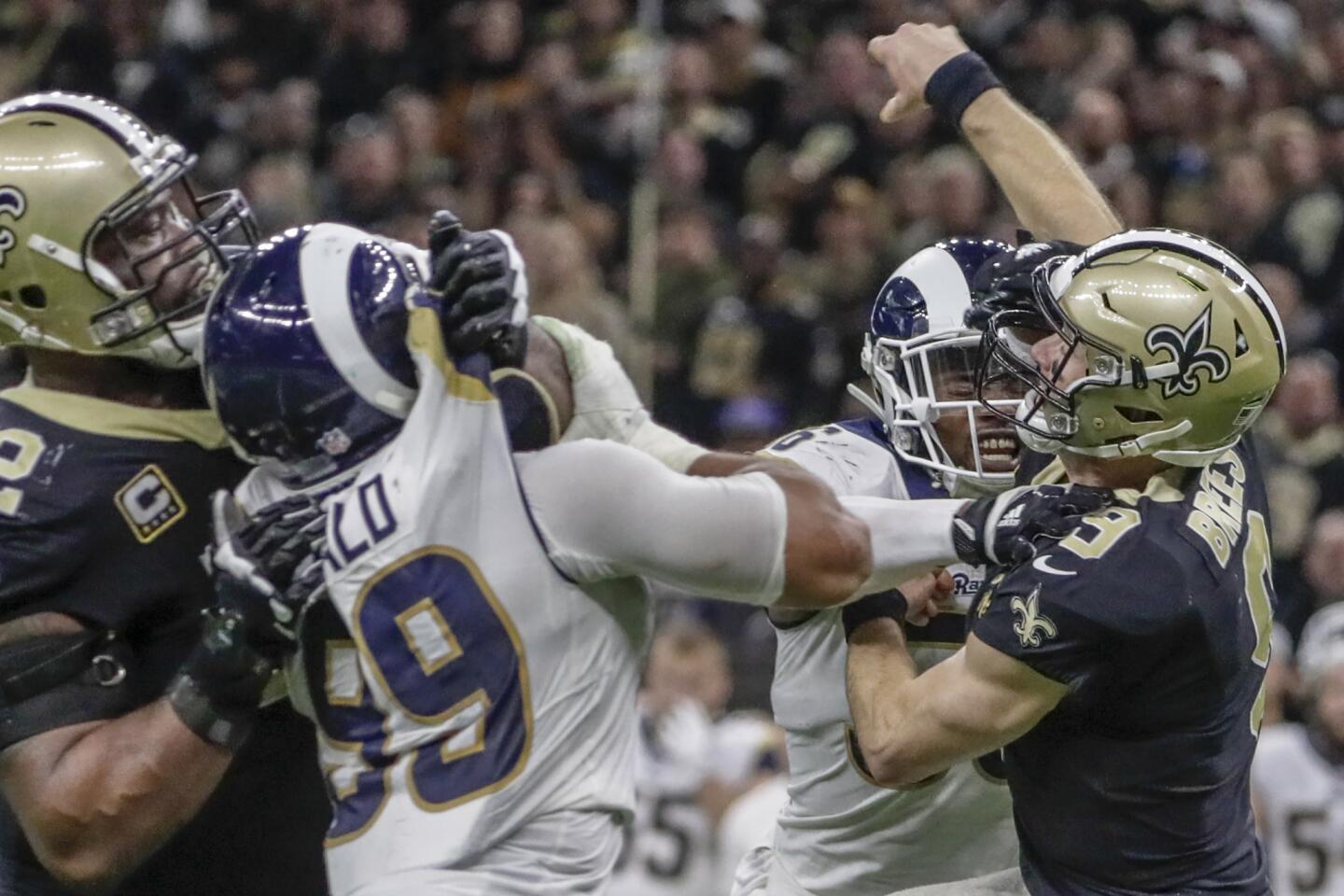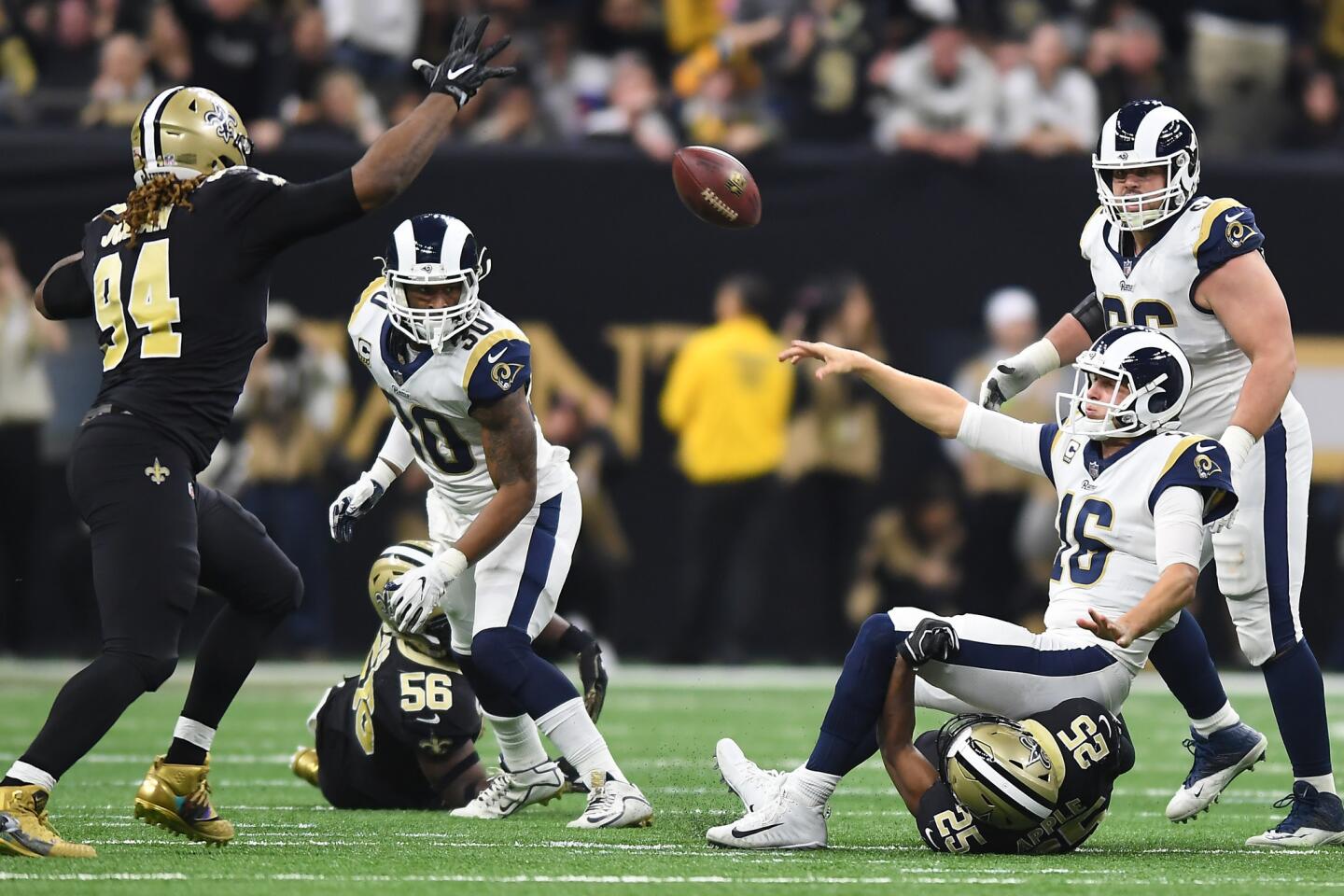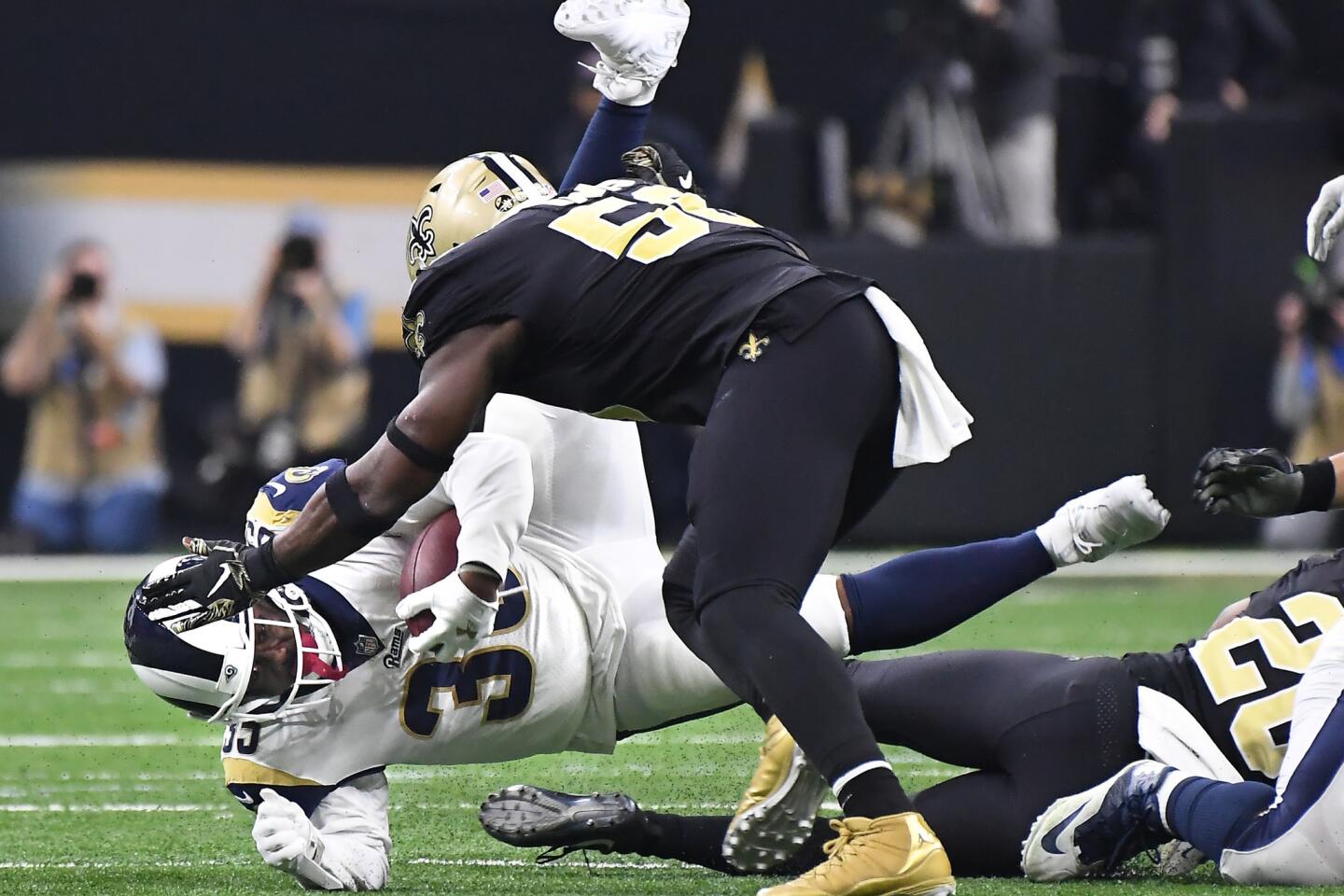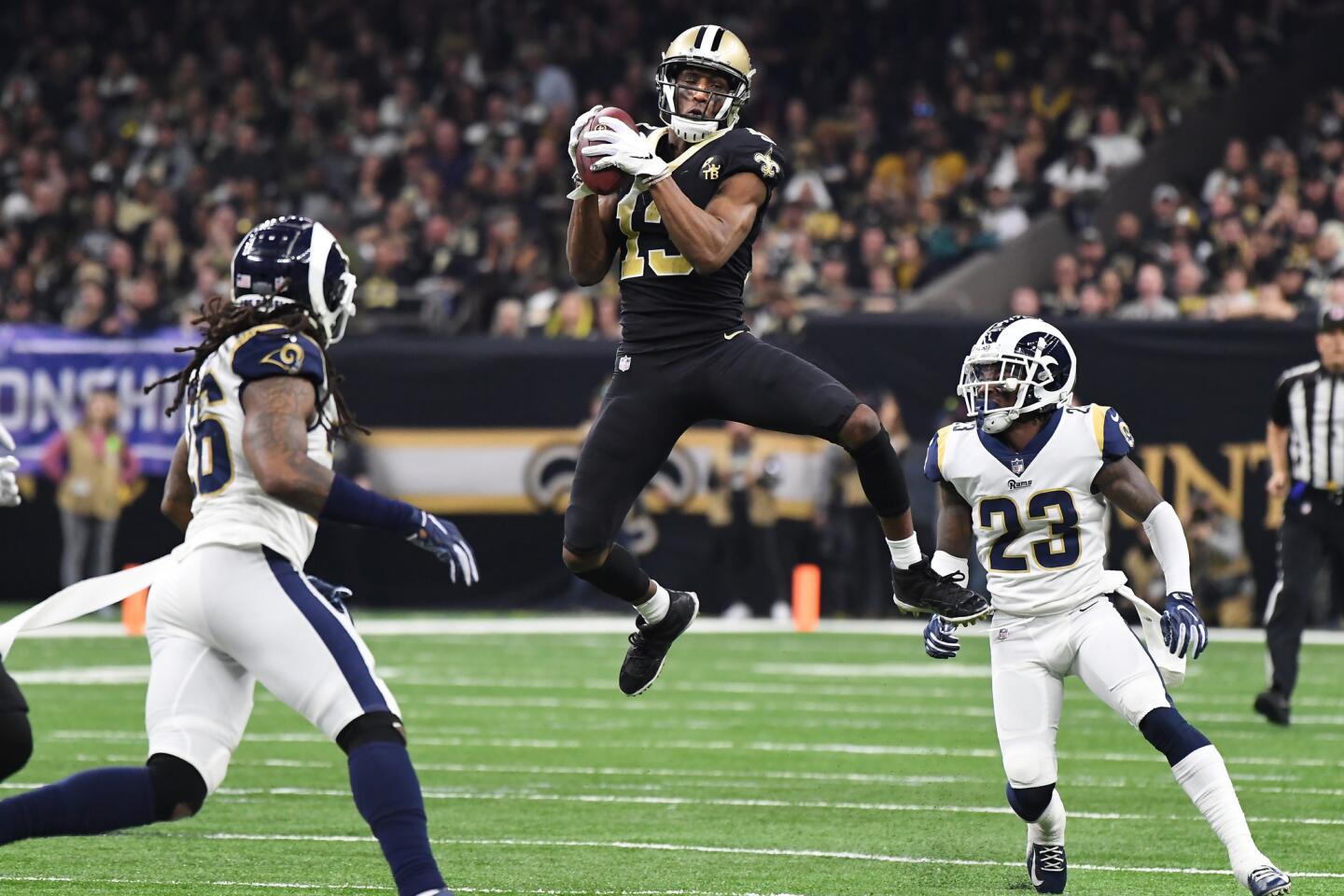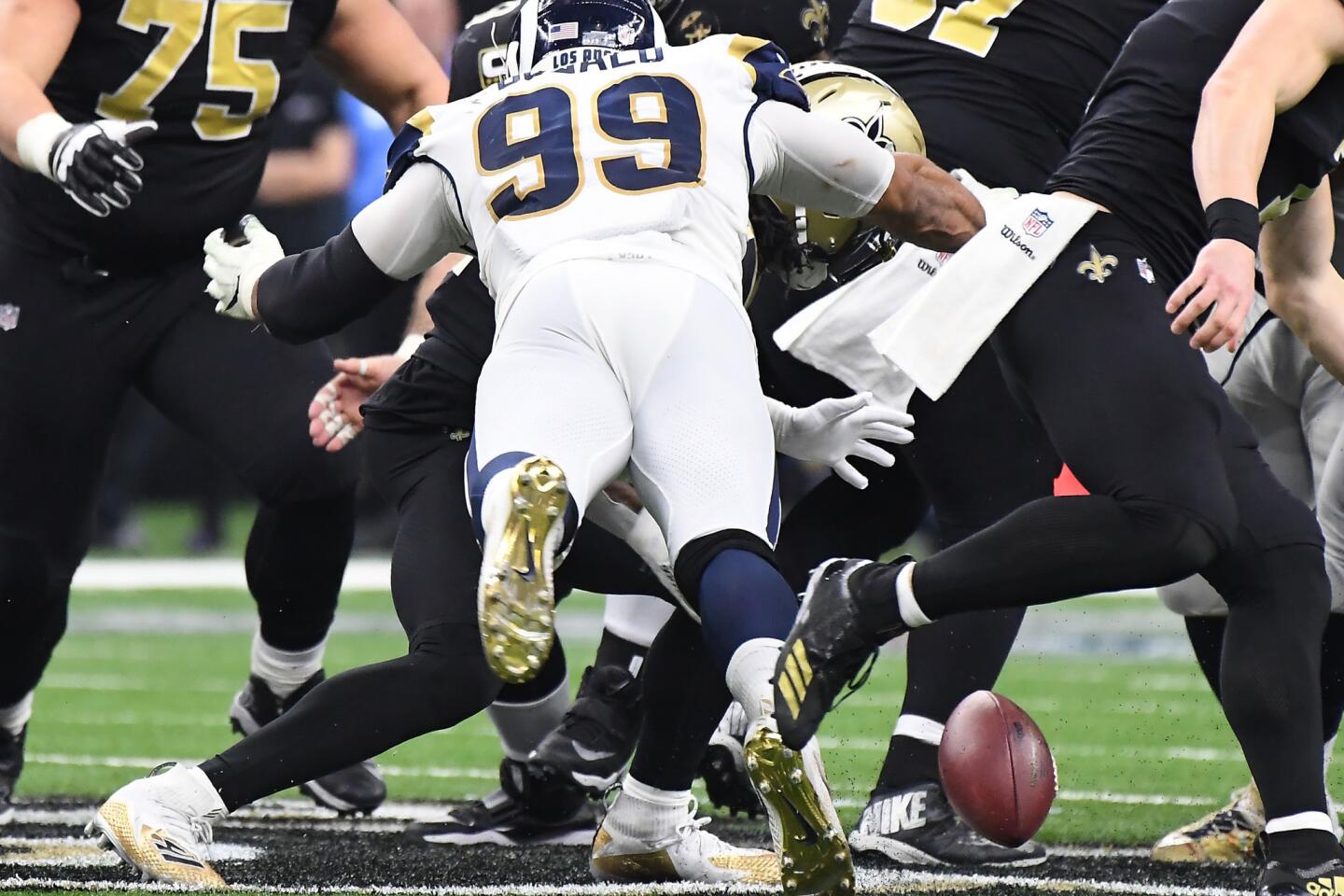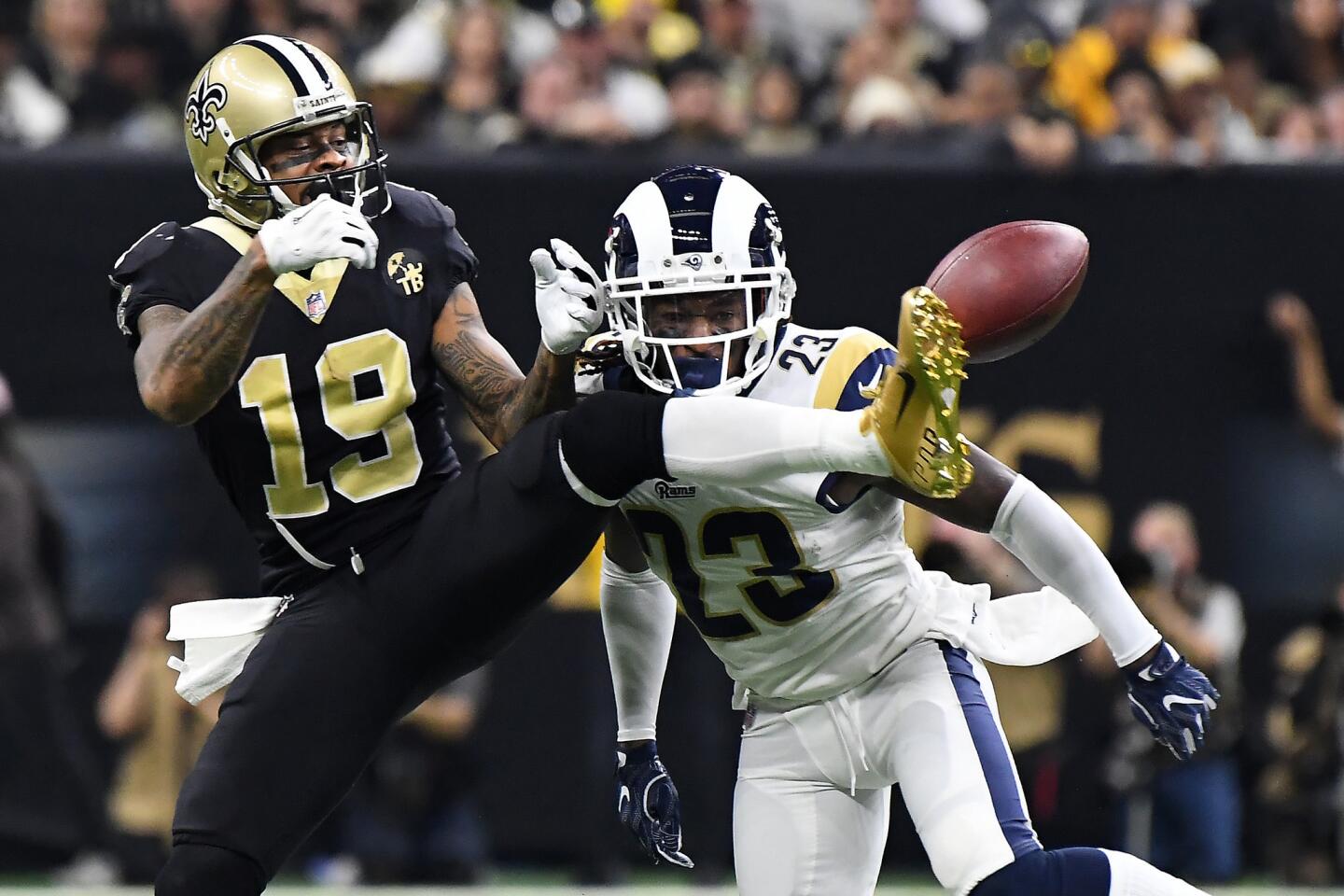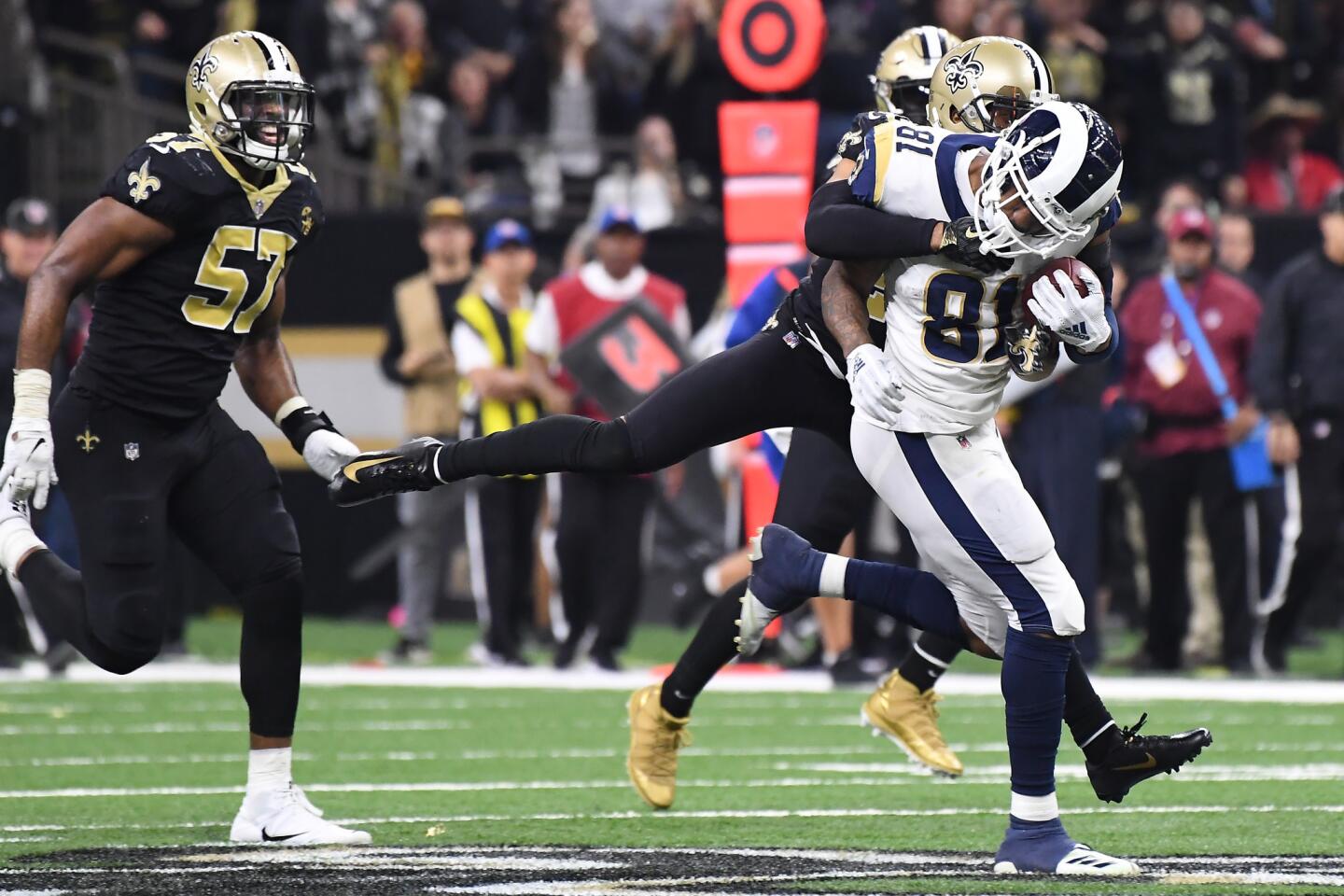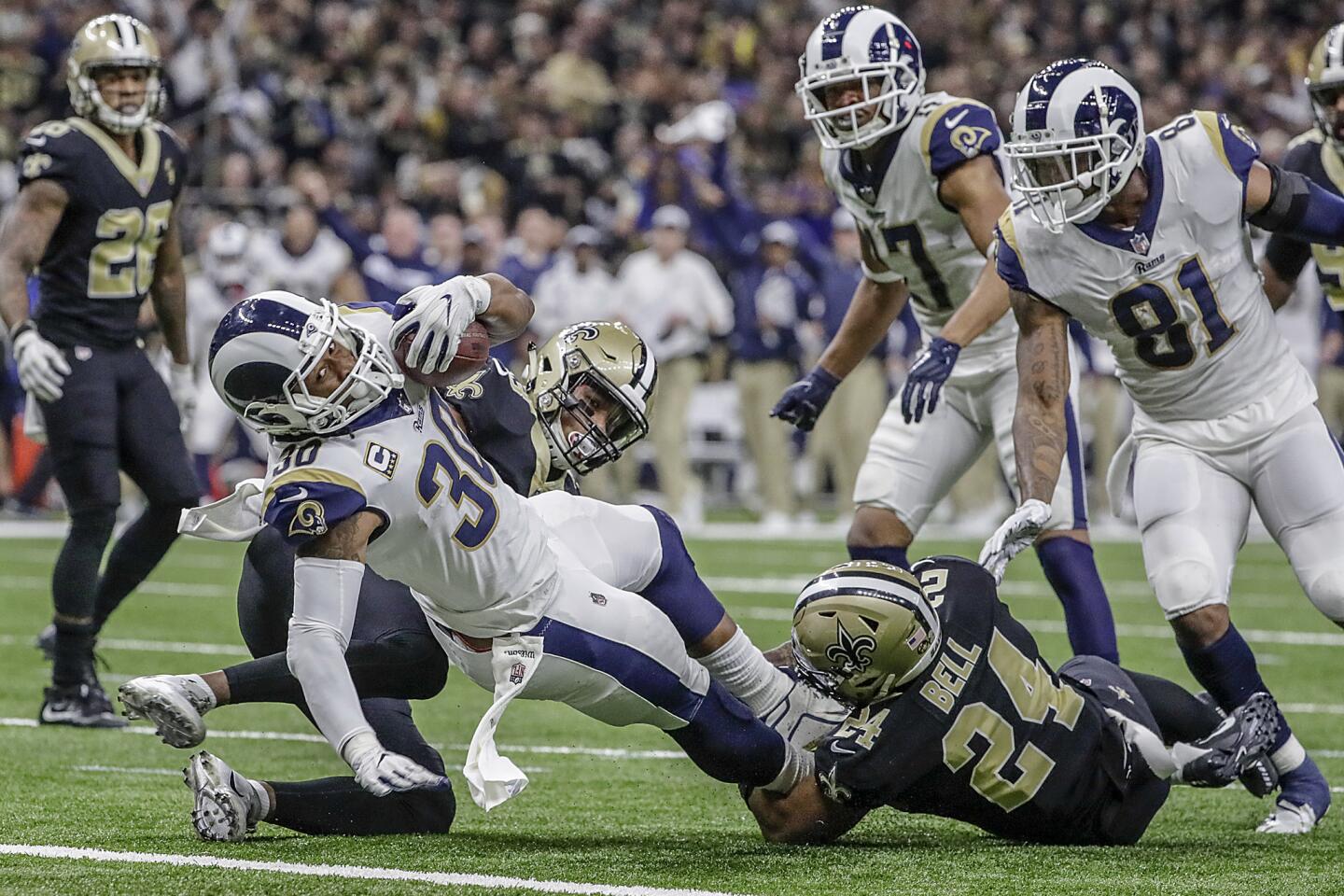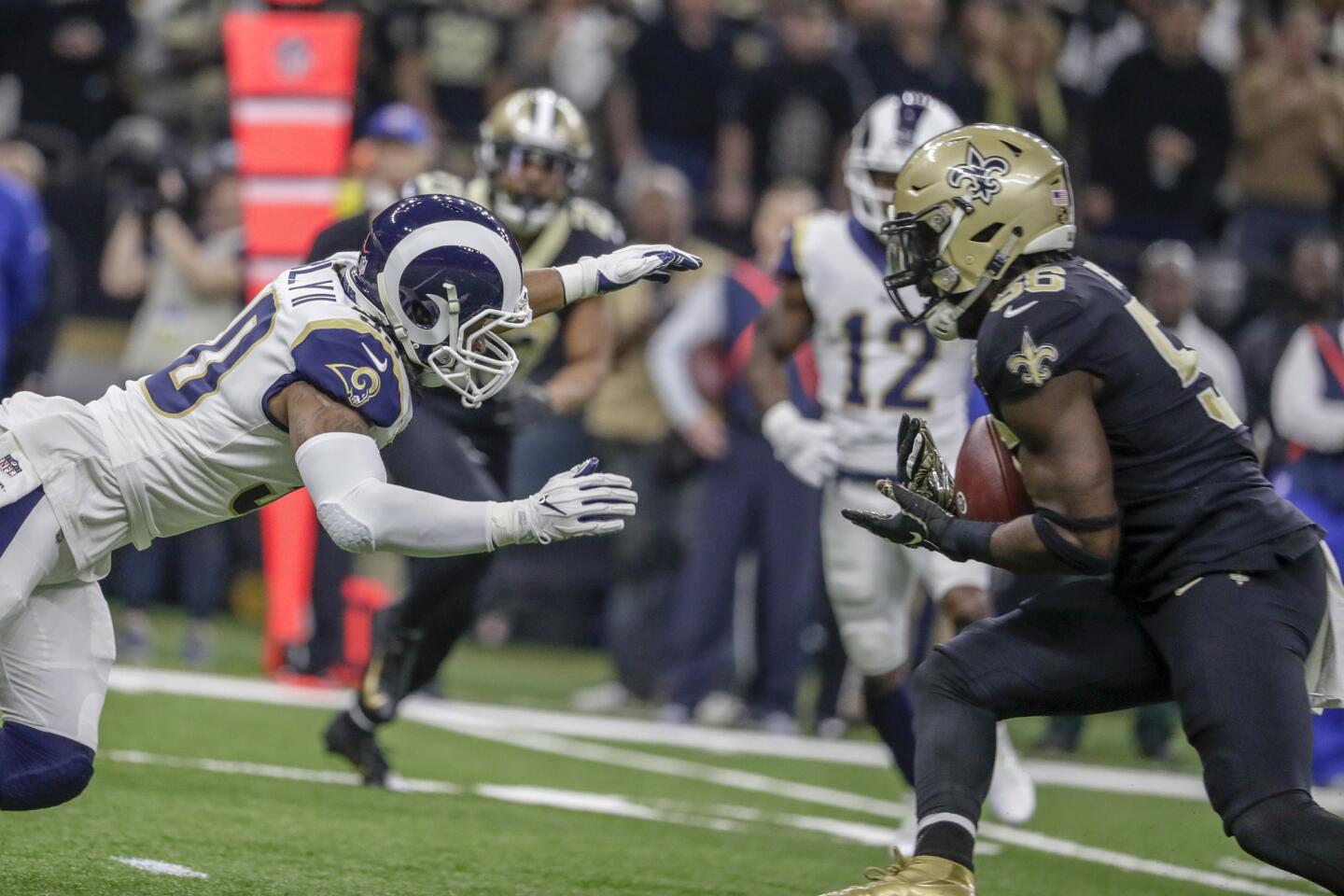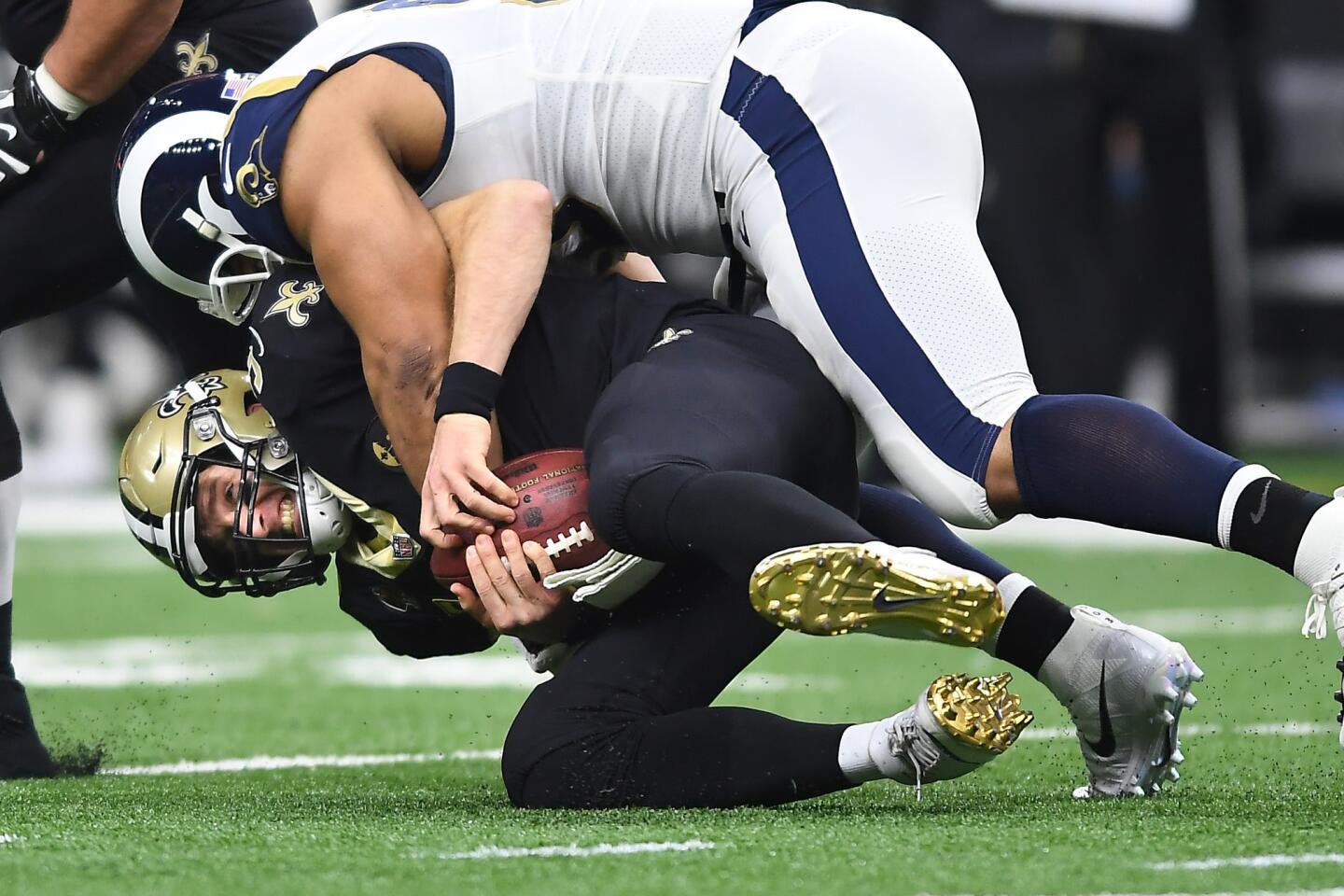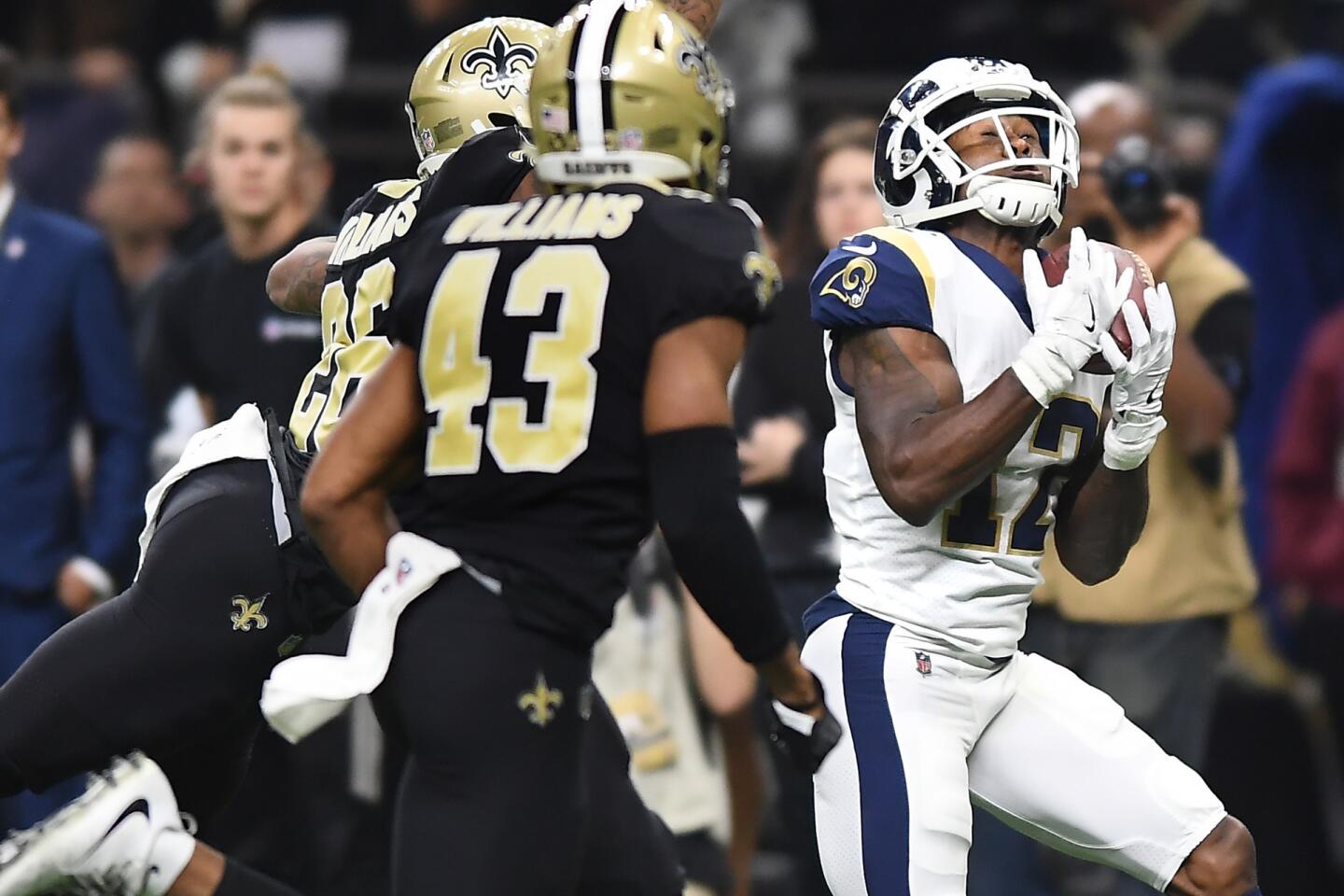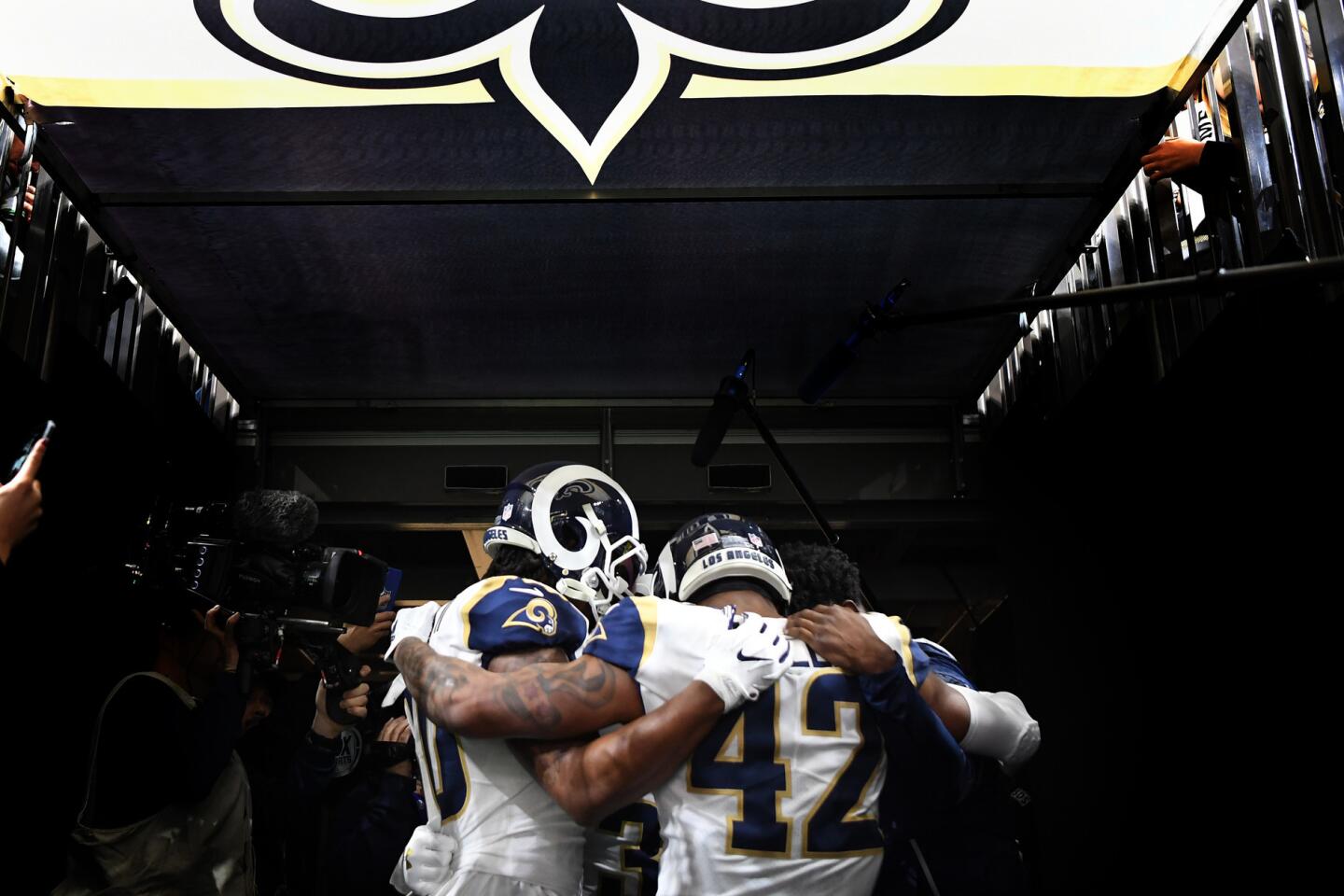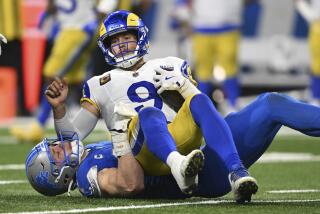Sean Payton: NFL admitted officials missed pass interference call against Rams
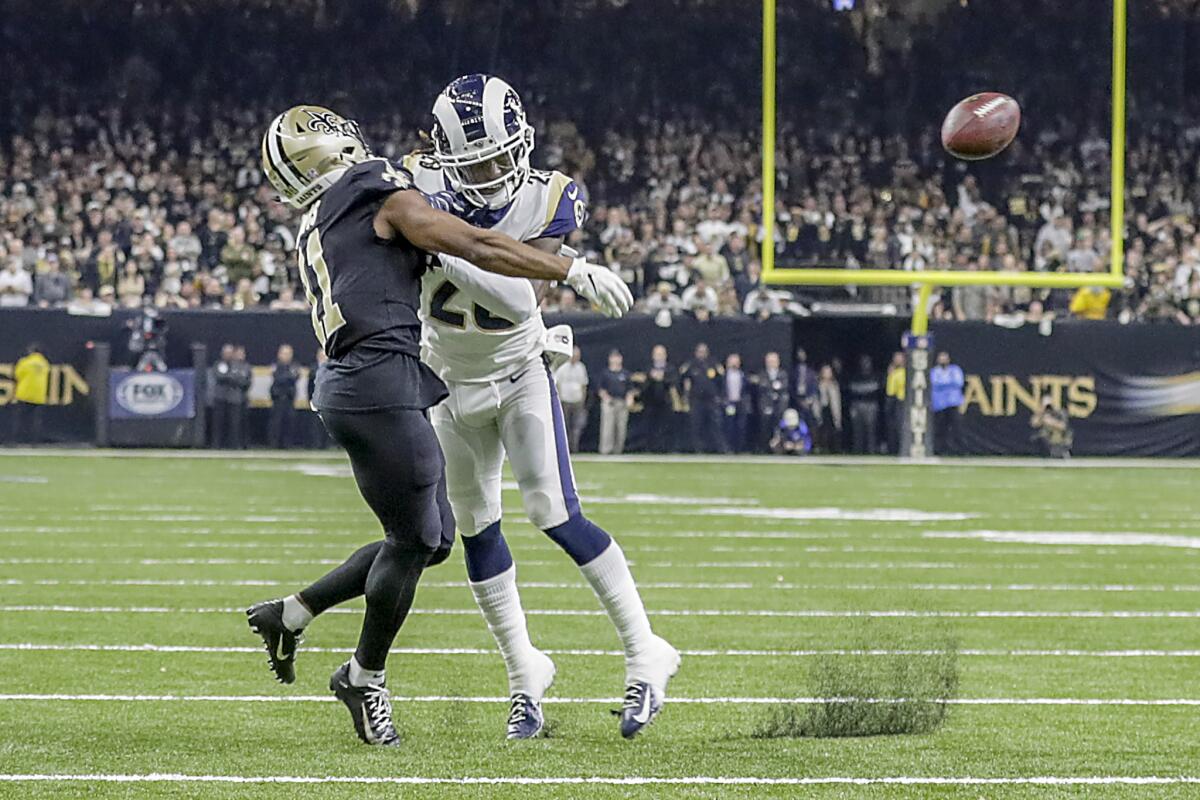
Reporting from new orleans — After his helmet absorbed the blow from Rams defensive back Nickell Robey-Coleman, after his head thudded against the turf of the Mercedes-Benz Superdome, after he became a waylaid bystander for an indelible moment of officiating incompetence, Saints wide receiver Tommylee Lewis swept his eyes across the gridiron, searching for a flash of yellow.
Surely, assumed Lewis, the 73,000 fans inside the building and the millions of others gawking at their televisions, the referees would punish Robey-Coleman for clocking Lewis well before the fourth-quarter pass from quarterback Drew Brees arrived. They don’t sell textbooks about football penalties, but if they did, this play would open the chapter about pass interference.
“I don’t know,” Saints coach Sean Payton said, “if there was ever a more obvious pass-interference call than that.”
The flagrance of the hit and the magnitude of the situation only added to the trauma for the Saints after the Rams snatched away a 26-23 victory in the NFC championship game. A penalty would have extended a drive in the red zone, with less than two minutes on the clock. Instead, New Orleans settled for a field goal, leaving open the door for Jared Goff’s game-tying sprint to end regulation and Greg Zuerlein’s game-winning, 57-yard kick in overtime.
The sequence delivered the Rams to the Super Bowl and subjected the Saints to a winter spent cursing the officiating crew, because a game in which the Rams erased a 13-point road deficit and earned their first Super Bowl berth as Angelenos since 1979 will be remembered for an official keeping a flag inside his pocket.
The missed call transformed the Superdome’s din from festive to toxic, as the public-address announcer pleaded with fans to stop throwing objects onto the field. “We Were Robbed,” read a road sign over the Lake Pontchartrain Causeway after the game.
The missed call inspired near-silence inside the Saints locker room, as the players struggled to summon any emotion besides shock.
“Without bashing the so-said referee who is supposed to be elite at his job, blame it on the government shutdown,” defensive end Cameron Jordan said. “I don’t know.”
And the missed call caused an apologetic message from the NFL to Payton. Payton indicated he spoke after the defeat with the league’s senior vice president of officiating, Al Riveron.
“The first thing Al said when I got on the phone was ‘We messed it up,’ ” Payton said.
Added Payton, “It was simple. They blew the call. It should never have not been a call. They said not only was it interference, but it should have been [a] helmet-to-helmet [penalty].”
The play began at the Rams’ 13, with one minute and 49 seconds remaining and the score tied at 20. Brees set up in the shotgun, with Lewis flanking him in the backfield. Initially unable to locate Lewis, Robey-Coleman was sprinting across the field at the snap.
The miscommunication created some separation for Lewis as he executed a wheel route. Brees fired the football toward the right sideline. Robey-Coleman saw Lewis raise his hands for the catch. He elected to go after his man, rather than the ball.
The side of Robey-Coleman’s helmet collided with Lewis’ facemask. The hit lifted Lewis off his feet, and sent him spinning 180 degrees. Robey-Coleman said he heard from an official that the ball was tipped. But he did not deny his infraction.
“I felt more than lucky in that moment,” Robey-Coleman said. “I felt blessed. It probably was interference, because I didn’t play the ball.”
Rams coach Sean McVay applauded Robey-Coleman for the aggression. Robey-Coleman made “a nice play,” he said. “And I am certainly not going to complain about the way that was officiated.”
The crowd hollered when Lewis went down. The jeers only grew in volume as replays inside the stadium revealed the depth of the mistake. The call occurred in the vicinity of down judge Patrick Turner and side judge Gary Cavaletto.
“I will admit, I was a little surprised that one of the two, with the same look that they had, didn’t come up with a different call,” Mike Pereira, former NFL vice president of officiating, told The Times. “What did I see? Well, pass interference.”
In a brief interview after the game, head referee Bill Vinovich called the decision “a judgment call by the covering official. I personally have not seen the play.” Vinovich was one of the few inside the stadium who missed it. Lewis caught a replay as he returned to the sideline. “I saw what everybody else saw,” he said. “Y’all feel like it was obvious? Everybody knew it was obvious.”
Sign up for our daily sports newsletter »
The replay system offered the Saints little recourse. Vinovich confirmed that the play could not be reviewed. Payton barked in vain at the officials near his bench. As a member of the league’s competition committee, he will have a say in any alterations moving forward. But the postgame apology provided no comfort to his players.
“It ain’t going to change nothing,” Saints wide receiver Ted Ginn Jr., said. “They should have come down and overturned it.”
With the loss, a new chapter of postseason misery for New Orleans was written. A year ago, the Saints lost in the divisional round on a fluke touchdown thrown by Vikings quarterback Case Keenum. The play was so improbable it became known as “The Minnesota Miracle.”
Somehow, this rivaled that. The missed call might even be worse.
“We could fix what happened last year,” Saints offensive lineman Larry Warford said. “We could put that on ourselves and fix it. But that, a missed call, what can you really do? I can’t explain it right now.”
Twitter: @McCulloughTimes
More to Read
Go beyond the scoreboard
Get the latest on L.A.'s teams in the daily Sports Report newsletter.
You may occasionally receive promotional content from the Los Angeles Times.
